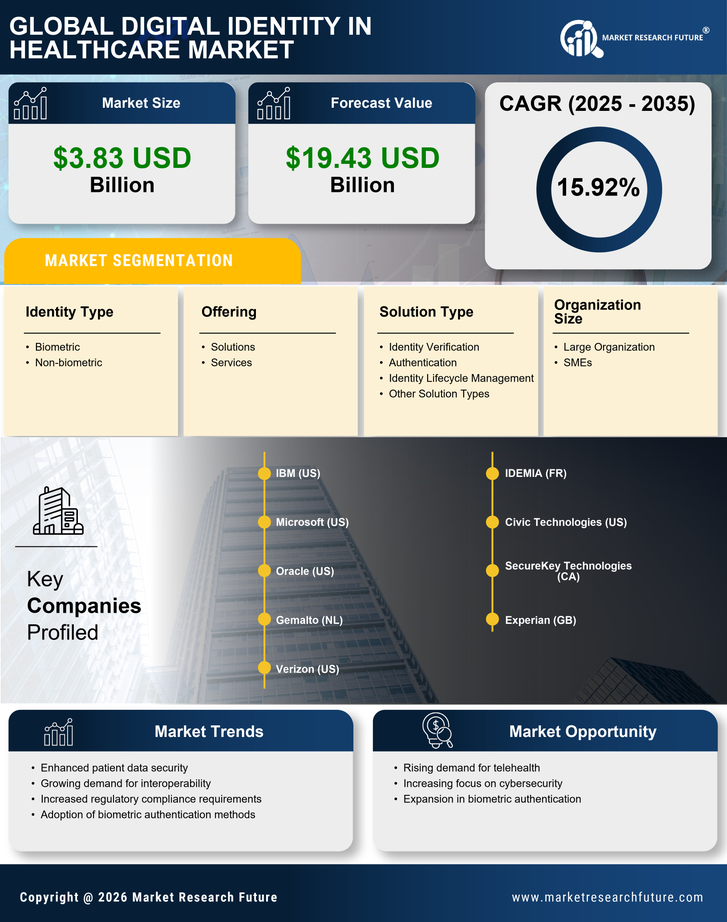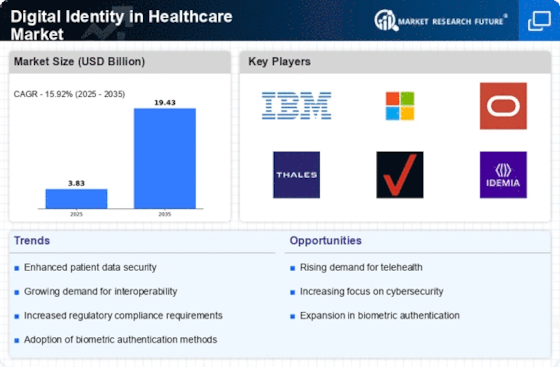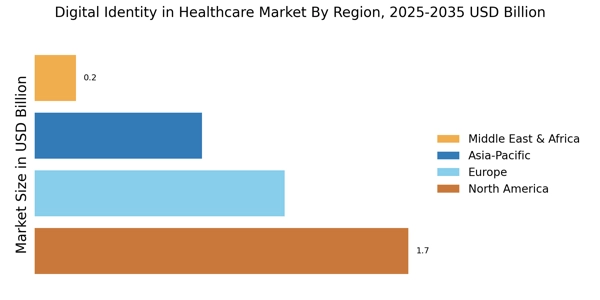Digital Identity in Healthcare Market Summary
As per Market Research Future analysis, the Digital Identity in Healthcare Market was estimated at 3.825 USD Billion in 2024. The Digital Identity in Healthcare industry is projected to grow from 4.434 USD Billion in 2025 to 19.43 USD Billion by 2035, exhibiting a compound annual growth rate (CAGR) of 15.92% during the forecast period 2025 - 2035
Key Market Trends & Highlights
The Digital Identity in Healthcare Market is experiencing robust growth driven by technological advancements and regulatory demands.
- The market is witnessing an increased focus on patient-centric solutions, particularly in North America.
- Integration of advanced technologies is becoming essential for enhancing healthcare delivery in the Asia-Pacific region.
- Regulatory compliance and data security are paramount as healthcare organizations navigate evolving legal landscapes.
- Key market drivers include the growing demand for telehealth services and rising cybersecurity threats, which are shaping the industry's future.
Market Size & Forecast
| 2024 Market Size | 3.825 (USD Billion) |
| 2035 Market Size | 19.43 (USD Billion) |
| CAGR (2025 - 2035) | 15.92% |
Major Players
IBM (US), Microsoft (US), Oracle (US), Gemalto (NL), Verizon (US), IDEMIA (FR), Civic Technologies (US), SecureKey Technologies (CA), Experian (GB)


















